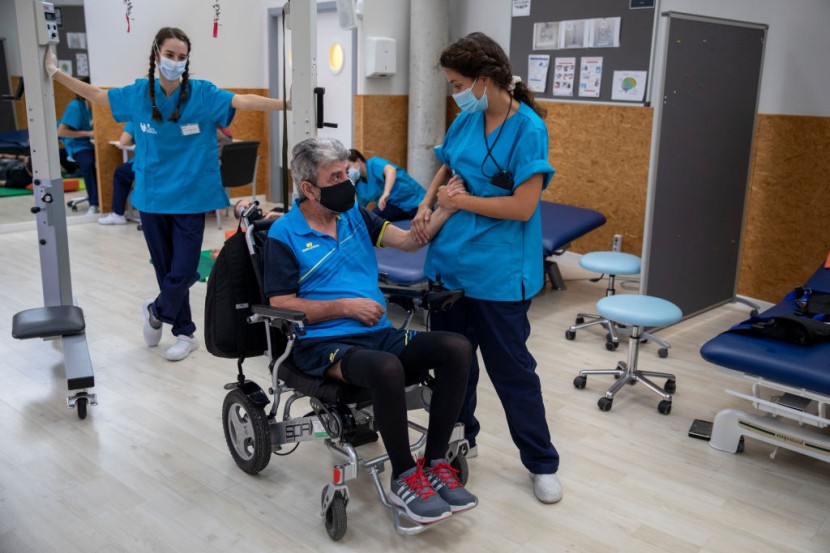
When people began experiencing brain fatigue, dizziness, and vertigo after contracting COVID-19, doctors were unsure how long the symptoms would last. Were these symptoms the result of a viral infection or the first signs of a neurological problem? Researchers are now getting closer to finding out.
Researchers closing in on COVID-19's link to neurological disorders
One in five coronavirus long-haulers, individuals who have been sick with COVID-19 for three weeks or more, suffered cognitive dysfunction at least six months after their initial diagnosis, per a recent preprint analysis that is still pending peer review. Brain fog has resulted in memory loss, inability to concentrate, and difficulties making decisions for certain people. Patients have had to take days off work or even apply for unemployment in some situations.
"Neuropsychiatric conditions continue to be a large part of the syndromes encountered by some COVID-19 survivors," Alasdair Rooney, a co-author of the study, told Business Insider. Rooney's research included almost 19,000 adult patients from 51 studies, making it one of the most comprehensive studies of neurological effects in long-haul travelers to date. If the subjects had been hospitalized or not, regardless of how serious their condition was at the onset, the trends were the same.
Doctors can't identify these conditions as neurological disorders or even chronic conditions until they know how long they last. Various studies track long-haulers over different periods and from other starting points complicates data sets.
Nonetheless, some research suggests a correlation between COVID-19 and long-term neurological problems. According to a recent study, 72 percent of coronavirus survivors hospitalized with brain disorders or injury did so within six months of their infection with COVID-19.
One of the difficulties of diagnosing long-term COVID-19 signs is that doctors only learn about the virus's underlying mechanisms. Researchers, for example, haven't worked out why some long-haul travelers experience fatigue and others experience chest pain or difficulty breathing.
In Rooney's analysis, 27 percent of coronavirus long-haulers reported insomnia, and 24 percent reported fatigue, in addition to brain fog. According to Rooney, both signs may be caused by neurological issues, but it isn't the only reason.
Anxiety was reported by 19 percent of coronavirus patients in the study, while post-traumatic stress was reported by 15 percent. Rooney said it's difficult to say whether the problems were caused by COVID-19 directly, were caused by the pandemic in general, or were caused by anything else. However, any persistent medical or psychological disorders should be taken seriously, he said. Future research should consider the seriousness of these effects, he explained, because brain fog can be life-threatening for some people but only unpleasant for others.
COVID-19 found as a most common cause of a rare spinal disorder
According to a recent scientific review, there may be a correlation between COVID-19 and an unusual spinal disorder that can induce paralysis and quadriplegia in adults and a few children in several countries. Researchers in the United States and Panama have discovered at least 43 cases of acute transverse myelitis (ATM) attributed to an initial COVID-19 outbreak, out of a total of 86 million COVID-19 cases in 21 countries.
Three of these cases were discovered after trials for the AstraZeneca vaccine, and experts believe one of them is potentially related to the vaccine. The researchers combed through all previously published biomedical literature on ATM, using search words to look for references to the neurological condition linked to the COVID-19 virus.
However, the review discovered 43 confirmed cases of ATM-related to COVID-19 infection between March 2020 and January 2021, scattered through countries such as the United States, India, Italy, Belgium, Australia, Mexico, Spain, Panama, Moldova, Turkey, Indonesia, and Switzerland. Iran had the most significant rate of all the countries, with seven cases, followed by Italy and the United States, each with six cases, as per National Post via MSN.








